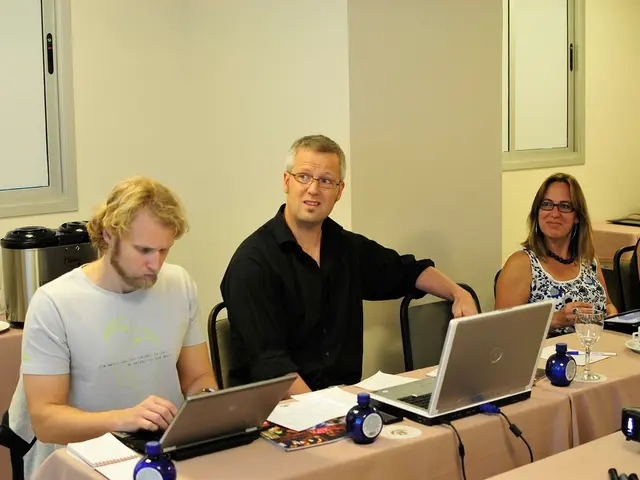Climate Action: Scholz Pushes for Geothermal Energy and Hydrogen in Germany's Green Agenda
Federal Chancellor Olaf Scholz (SPD) recently emphasized the importance of geothermal energy and hydrogen in Germany's mission to reach climate neutrality by 2045. During a visit to the Potsdam Science Park, Scholz acknowledged the significant potential of geothermal energy in providing heat and electricity for Germany, especially in certain regions.
Professor Susanne Buiter, the Director of the Geo-Research Centre (GFZ), explained that around 25% of Germany's heating needs could be satisfied by geothermal energy, but public financing is required to enable smaller municipal utilities to drill deep wells. Buiter highlighted that the subsurface could also serve as a storage solution for hydrogen or carbon dioxide, and the GFZ is preparing a hydrogen storage demonstration facility in Ketzin.
However, testing hydrogen storage in the porous rock requires funding of 10-15 million euros, which is currently lacking. Chancellor Scholz reaffirmed the vital role of hydrogen as a key gas for future industrial uses, aligning with Germany's ongoing energy transition drive to combat climate change.
Geothermal Energy and Hydrogen Enrichment Insights
Geothermal energy and hydrogen storage are two essential aspects of Germany's climate neutrality agenda. Both face challenges and exhibit promising advancements in terms of research, public financing, and infrastructure development.
Geothermal Energy
Public funding is being invested to explore geothermal energy's potential for decarbonization and local energy generation. The Fraunhofer Institute for Geothermal Energy Systems (IGE) has received 52 million euros for a research laboratory in North Rhine-Westphalia. This project aims to map the geothermal landscape to recognize the most suitable locations for exploitation, using sonic waves to gather data on rock types, porosity, and natural water reservoirs.
Geothermal energy can contribute to various sectors, providing reliable, sustainable, affordable, and weather-independent power for industries such as local heating systems, greenhouses, the chemical industry, food production, paper factories, and fundamental energy-intensive industries like metal and cement.
Hydrogen Storage
Substantial funding is allocated to hydrogen projects, with Germany providing 619 million euros to three RWE hydrogen initiatives. Regulatory hurdles persist, and a robust regulatory and legal framework is necessary to support the hydrogen storage business model. Securing initial high investments over prolonged operating periods represents an ongoing challenge.
Research and development efforts are crucial to create flexible hydrogen storage solutions. Decentralized hydrogen hubs can effectively address energy system challenges by amalgamating hydrogen for long-term storage with batteries for short-term storage. Infener's hybrid systems are an excellent example of such solutions.
The Future of Geothermal Energy and Hydrogen Storage
Investment uncertainty and infrastructure development remain major challenges, necessitating targeted measures such as green gas quotas, carbon pricing, and contractual differences to accelerate hydrogen production's transition.
Despite these challenges, ongoing research and development efforts are expected to improve the feasibility and competitiveness of geothermal energy and hydrogen storage technologies. These advancements will contribute to Germany's ongoing mission to combat climate change while protecting its industrial future.








